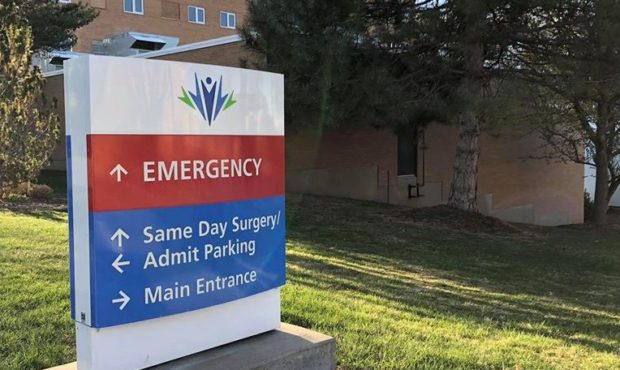Intermountain Healthcare defines ICU capacity amid coronavirus pandemic
Nov 25, 2020, 6:56 PM

FILE: John Wojcik, KSL NewsRadio
SALT LAKE CITY — As COVID-19 numbers continue to climb, Utah’s hospitals are filling up — and the capacity of the ICU becomes smaller and smaller as a result.
Intermountain recently hired 200 traveling nurses to accommodate the surge in COVID-19 cases in Utah, but ICU capacity continues to be a concern.
Intermountain considers an ICU to be functionally full when it reaches 85 percent capacity.
“Right now, many ICUs in the state are running at over 90 percent full, and based on what we know about positive test rates, they’re about to get busier,” Intermountain stated on their blog.
What is an ICU?
The Intensive Care Unit of a hospital handles patients who need critical care. Patients include those who may have planned admission following a surgery, an unexpected admission due to a complication, or a sudden deterioration in health.
This means the rooms are specifically designed for intensive patient monitoring. Additionally, the ratio of caregivers to patients is higher in the ICU.
“For example, a nurse may care for only one or two patients in the ICU compared to five or six on a standard medical/surgical floor,” Intermountain wrote. The reason: so each caregiver can give more attention to a critical patient.
What does “ICU Capacity” mean?
Capacity refers to the amount of ICU beds currently occupied by critical patients. Intermountain Healthcare considers ICU capacity to be full when it reaches 85 percent. As stated earlier, many ICUs in Utah are running over 90 percent full.
Well, why is 85 percent considered full and not 100 percent?
“Right now, hospitals are operating like every day IS the busiest day of the year, and every day gets worse and worse. Plus, ICUs can’t fill every single bed. They have to keep a number open for emergencies like traumas or heart attacks — patients who don’t have time to wait for a bed to become available,” Intermountain stated.
Why should Utahns care about ICU capacity?
Unfortunately, patient care is already being affected, according to Intermountain. The care hospitals are providing now isn’t the same as it was a couple of months ago.
“Caregivers from other sections of the hospital are providing ICU care right now. And while they are dedicated and skilled, they don’t have the same training and expertise as members of the critical care team,” Intermountain reports.
Most of us assume the healthcare we need will be there when we need it. But, as COVID-19 numbers continue to rise there’s less assurance that care will be there.
“Using historical data, we can predict that thousands, maybe tens of thousands, of Utahns will be headed to their local hospital with heart attacks, injuries, cancer, surgical complications, flu or pneumonia, or other serious problems that require ICU care,” this winter. If the ICUs are overwhelmed with COVID-19 patients, the care needed for other patients will be limited.
How To Prevent the Spread of COVID-19 Coronavirus
COVID-19 coronavirus spreads person to person, similar to the common cold and the flu. So, to prevent it from spreading:
- Wash hands frequently and thoroughly, with soap and water, for at least 20 seconds.
- Don’t touch your face.
- Wear a mask to protect yourself and others per CDC recommendations.
- Keep children and those with compromised immune systems away from someone who is coughing or sneezing (in this instance, at least six feet).
- If there is an outbreak near you, practice social distancing (stay at home, instead of going to the movies, sports events, or other activities).
- Get a flu shot.
Local resources
Utah’s Coronavirus Information
The Church of Jesus Christ of Latter-day Saints
Utah Coronavirus Information Line – 1-800-456-7707
National Resources
Centers for Disease Control and Prevention













